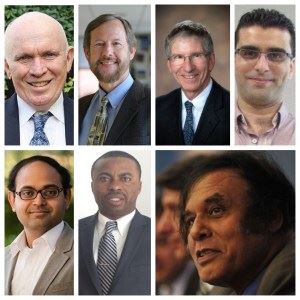 Harrisburg University of Science and Technology is hosting a series of six public lectures featuring thought leaders who will speak on a variety of topics related to climate disruption and sustainable development during the spring semester.
Harrisburg University of Science and Technology is hosting a series of six public lectures featuring thought leaders who will speak on a variety of topics related to climate disruption and sustainable development during the spring semester.
Event #4
Friday, March 29, 2019, 11:30AM-1:00PM, 14th Floor Auditorium: Natural Gas in Pennsylvania: Energy, Innovation, and the Environment – Arvind P. Ravikumar, PhD, Assistant Professor in Energy Engineering, Harrisburg University
Pennsylvania is one of the largest producers of natural gas in the United States. The shale boom of the past decade had many benefits – it reduced air pollution, created jobs, and provided local economic growth. More importantly, it has also made the U.S. a net importer of oil and gas resources – a feat that was considered impossible just 10 years ago. In this talk, Dr. Ravikumar will discuss how Pennsylvania can harness advances in new technological innovation to make the natural gas industry more sustainable, while creating hundreds of local, high-paying jobs.
Despite this success of natural gas development in recent years, it has also brought its own challenges, namely -methane emissions. Methane is the major component of natural gas that heats our homes and cooks our food. However, leaks in the natural gas supply chain often releases methane directly into our atmosphere. This is a problem. Methane is a greenhouse gas that is far more powerful than carbon dioxide and contributes to climate change. Near the ground, it can lead to ozone formation and local air pollution. The challenge, therefore, to Pennsylvania and the U.S., is to strike a balance between effective environmental regulations and economic development.
Fortunately, during the last five years tremendous innovation has occurred in the methane space. Many start-up companies in the U.S. are developing methane leak detection sensors that are faster, cheaper, and more effective than existing solutions. These new sensors, often found on mobile platforms such as drones, trucks, planes, and even satellites, can enable the sustainable development of the natural gas industry. In this lecture, we will explore this technological revolution, understand its impact on the energy industry, and discuss what it means to Pennsylvania.
Dr. Arvind Ravikumar is an Assistant Professor in Energy Engineering at Harrisburg University and a non-resident fellow at the Payne Institute at the Colorado School of Mines. His work focuses on developing engineering-based solutions to inform energy and environmental policy in the road to a global clean energy transition. Most recently, his research has sought to understand and reduce methane emissions from the North American oil and gas industry through a combination of field work, modeling, and policy analysis. His other research interests include global trade in liquefied natural gas and the clean energy future in developing nations. He regularly consults with non-governmental organizations, and state and national regulatory agencies energy and environmental policy. Prior to joining Harrisburg, Ravikumar was a post-doctoral fellow at Stanford University and obtained his Ph.D. in Electrical Engineering from Princeton University in 2015.
RSVP online to HarrisburgU.edu/RSVP.